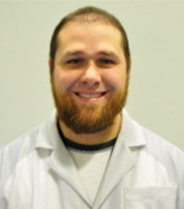Nicholas Williams Presents a Comparison of Clone and Authentic Altera Serial Configuration Devices at the Symposium on Counterfeits Parts and Materials
 Bio: Dr. Nicholas Williams is a senior electrical engineer at SMT Corporation since 2016. He received his B.S. in Electrical Engineering from the University of Connecticut in 2010 and a PhD in Electrical Engineering from the University of Connecticut in 2016. His PhD dissertation focused on novel techniques for efficiency improvements in small scale thermoelectric devices (waste heat to electrical energy conversion).
Bio: Dr. Nicholas Williams is a senior electrical engineer at SMT Corporation since 2016. He received his B.S. in Electrical Engineering from the University of Connecticut in 2010 and a PhD in Electrical Engineering from the University of Connecticut in 2016. His PhD dissertation focused on novel techniques for efficiency improvements in small scale thermoelectric devices (waste heat to electrical energy conversion).
Abstract: We have recently discovered several variations of cloned Altera serial configuration devices (EPCS4S18N) that show a significant advancement in clone complexity. Serial configuration devices are generally used to program FPGAs upon start up and it is during that process where there is a potential risk for bit-stream manipulation or other possible software hacking. This approach to tampering with FPGA programming is a much more cost effective strategy compared to cloning an entire FPGA which are orders of magnitude more complex than a serial configuration device. Sophisticated clone devices such as this Altera clone are potentially capable of passing testing methods such as radiological analysis, XRF/lead analysis, de-capsulation, cross-sectioning, and electrical testing. Results from several different clone variations will be compared to results from authentic devices. Additionally we will discuss how cloned devices could avoid detection when tested per AS6081.
Top